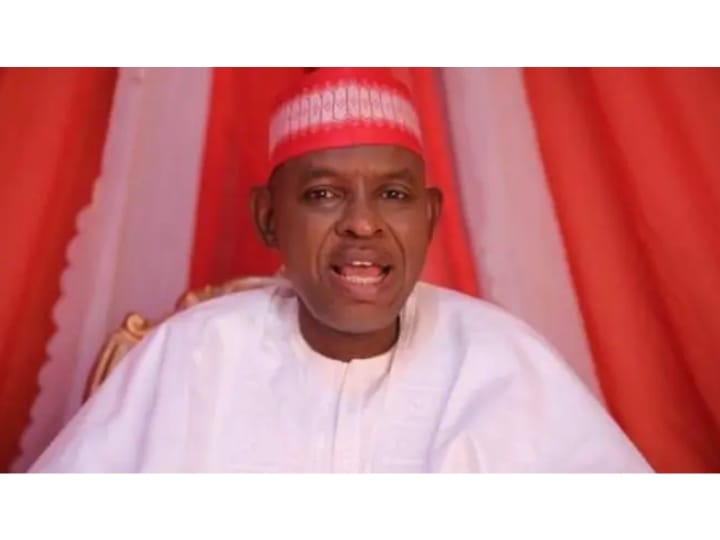Politics
Kano Governor Dispels Rift Rumours, Affirms Strong Relationship with Kwankwaso

Kano State Governor reassures the public of his strong relationship with Rabiu Kwankwaso, dispelling recent rumors of a rift between them. Learn more about their political alliance and statements.
Kano State Governor Abba Yusuf has refuted allegations of a rift with his political mentor, Senator Rabiu Kwankwaso. He emphasized that their relationship is solid and founded on mutual respect.
During a Wednesday press conference, Governor Yusuf tackled recent rumors circulating within the Kwankwasiyya movement and the New Nigeria People’s Party (NNPP). These speculations suggest that Kwankwaso has an undue influence on his administration, essentially serving as a “third term by proxy.” However, Yusuf dismissed these allegations as baseless and emphasized the solidity and longevity of his partnership with Kwankwaso.
“There is absolutely no truth to the rumors about any misunderstanding between us,” Yusuf said. “In my 40 years of knowing him, can you name another politician who has maintained a relationship this long and kept it harmonious?”
Rumors of discord have been intensified by Aliyu Sani Madakin-Gini, the House of Representatives member for Dala Federal Constituency, who recently distanced himself from Kwankwaso. Madakin-Gini claimed that disagreements over a drug contract and state scholarship program led to the rift. However, Yusuf refuted these claims, maintaining his independence while acknowledging Kwankwaso’s influence on his career.
“It is completely unfair to imply that I am somehow under the influence of Kwankwaso,” Yusuf stated. “Just two days ago, I visited him and addressed these rumors. I expressed my surprise by saying, ‘Do people really expect me to insult the man who supported me?’”
In the midst of controversy, a group within the NNPP known as “Abba Tsaya da Kafarka” (which translates to “Abba, stand on your own”) has been actively encouraging Yusuf to separate himself from Kwankwaso and make independent choices. In response, Yusuf publicly criticized this group’s position.
READ ALSO: Kwankwaso Ally Joins APC and Resigns as Kano Governor’s Aide
“This ‘stand on your own’ slogan is the biggest insult I’ve encountered as governor. It suggests that I should repay kindness with ingratitude,” he stated. “What has Kwankwaso done to warran this? All our efforts for the people’s welfare are ignored, and instead, they choose to spread divisive narratives.”
Amid escalating tensions within the NNPP, the state leadership has recently suspended Abdullahi Baffa Bichi, Secretary to the State Government, and Muhammad Diggol, Commissioner of Transportation. They have been accused of participating in the “Abba Tsaya da Kafarka” campaign; however, both officials deny these claims.
As support for this faction increases, other key figures from the Kwankwasiyya movement, such as House representatives Aliyu Sani Madakin Gini and Alhassan Rurum, have publicly distanced themselves from Kwankwaso. They urged Yusuf to assert his independence; however, Governor Yusuf remained steadfast in his loyalty.
“Do people not understand the role Kwankwaso has played? Where were these critics when he was laying the groundwork for our current efforts?” he asked.
Yusuf voiced his frustration over media claims that he had ignored numerous calls from Kwankwaso. “They reported that Kwankwaso called me over 30 times and I didn’t respond. Where did they get this information?” Yusuf questioned. “If it weren’t for my respect for journalists, I would have pursued legal action against the person who wrote that story. But both I and Kwankwaso are aware it’s completely untrue; there’s no conflict between us.”
In conclusion, he called on his supporters to abandon divisive rhetoric and emphasized the importance of respect and unity within the party. “From this day forward, I don’t want to hear ‘stand on your own’ in Kano State or anywhere else in Nigeria,” he stated. “We were taught to honor our elders, not insult them.”
